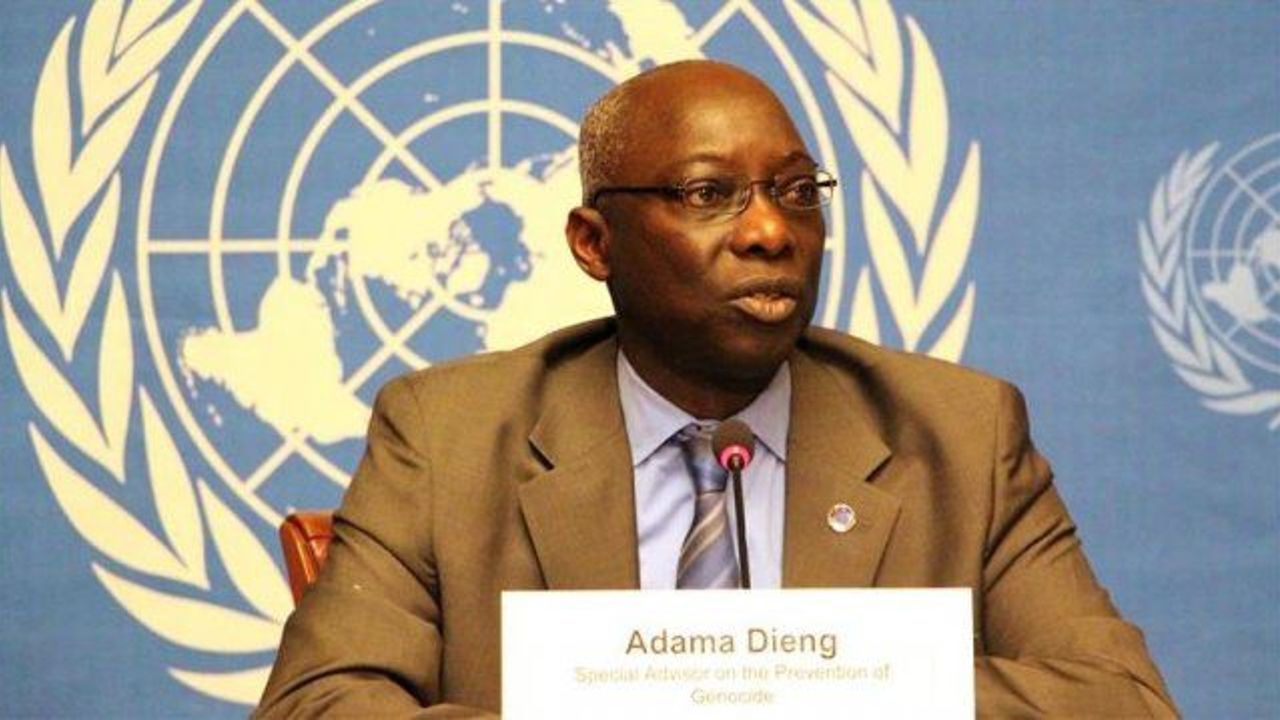UN adviser urges Myanmar to end violence on Rohingya
UN Special Adviser on Prevention of Genocide Adama Dieng has said he is shocked and alarmed at the serious human rights violations against the Muslim Rohingya community in northern Rakhine State by Myanmar's security forces.

Following a Feb. 3 report detailing the abuses published by the UN Office of the High Commissioner for Human Rights (OHCHR), Dieng said in a statement late Monday there have been allegations of rights breaches against the civilian population after a recent bout of violence last October.
“I and many others have been urging the authorities to conduct an independent and impartial investigation into these allegations. The investigation conducted by OHCHR gives further credibility to those accounts and describes a level of dehumanization and cruelty that is revolting, and unacceptable. This must stop right now!” he said.
According to the report, security forces committed "mass gang-rape, extra judicial killings -- including of babies and young children -- brutal beatings and disappearances."
While welcoming the Myanmar government's commitment to investigate the matter immediately, Dieng also criticized the failure of a government-sponsored commission led by Vice President Myint Swe to find any evidence of wrongdoing.
“I am concerned that the government commission, which had unhindered access to the location of the incidents, found nothing to substantiate the claims, while OHCHR, which was not given access to the area, found an overwhelming number of testimonies and other forms of evidence through interviews with refugees who had fled to a neighboring country,” Dieng said.
“The existing commission is not a credible option to undertake the new investigation," he said, urging for a "truly independent and impartial body" that includes international observers.
"If the government wants the international community and regional actors to believe in their willingness to resolve the matter, they must act responsibly and demonstrate their sincerity," he said.
A number of attacks on police stations rocked the Rakhine State on Oct. 9, 2016, triggering a draconian law enforcement response that caused the deaths of dozens and led to tens of thousands of people fleeing the country in fear.
Rohingya advocacy groups claim that not dozens but hundreds of Rohingya -- described by the UN as among the most persecuted groups worldwide -- were killed in the military operations in an area which has been closed to aid agencies and independent journalists.
The Myanmar government has been accused of being unwilling to open the area to international observers, leaving at least two separate UN agencies without access.
In December 2016, UN Secretary-General's Myanmar Adviser Vijay Nambiar warned the ongoing violence in the country's west is in danger of “getting out of hand", and asked State Counselor and Nobel Peace Prize laureate Aung San Suu Kyi to be more assertive in resolving historic problems faced by the area's Muslim and Buddhist communities.
Before the Oct. 9 attacks, the last major inter-communal violence between the two communities was in 2012 when 100 people -- mostly Muslims -- died and over 100,000 were displaced.
Anadolu Agency







